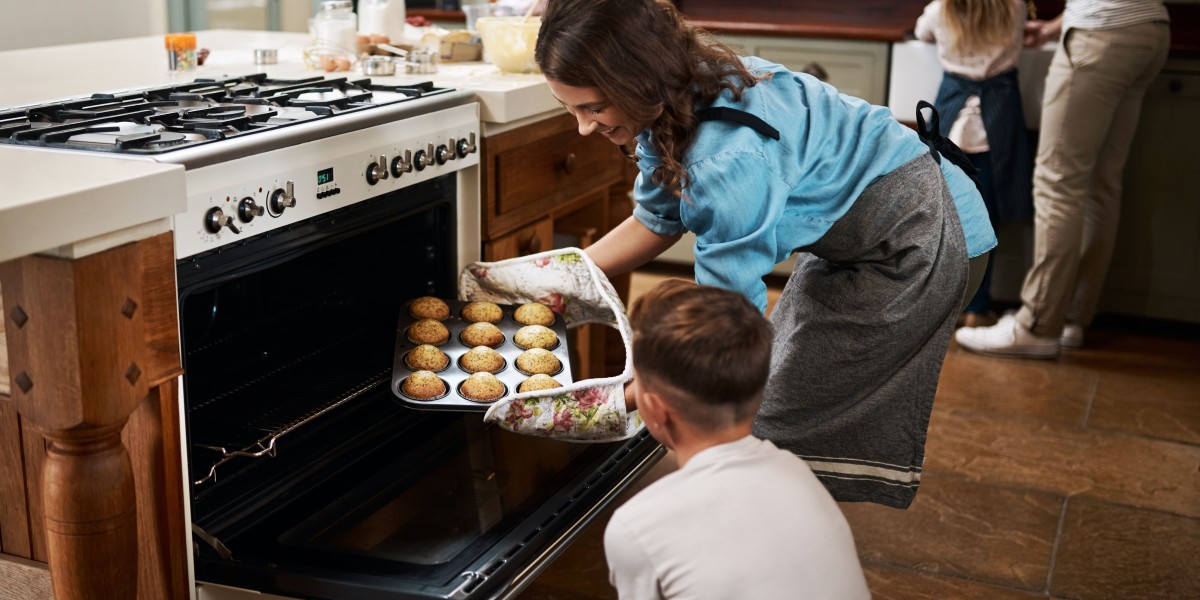The Rise of Integrated Ovens and Hobs: An In-Depth Look
In today's busy world, home cooking has undergone a substantial improvement. One innovation that has exceptionally impacted kitchen style and performance is the integrated oven and hob, which integrates both cooking appliances into a single, cohesive system. This short article checks out the benefits, types, installation factors to consider, and vital functions of integrated ovens and hobs, in addition to supplying standards for customers considering an upgrade.
What is an Integrated Oven and Hob?
An integrated oven and hob is a kitchen home appliance that combines an oven and a cooking surface (the hob) into one unit, typically developed to be built into the kitchen cabinets. This design supplies a smooth, modern aesthetic and takes full advantage of kitchen area, while likewise providing functionality for cooking and baking. As the preferences for open-plan living continue to rise, integrated units develop a streamlined look which blends flawlessly with kitchen furniture.
Secret Advantages of Integrated Ovens and Hobs
- Space-Saving Design: Integrated units are best for smaller kitchens, allowing homeowners to utilize available space successfully without jeopardizing on performance.
- Aesthetic Appeal: With their streamlined look, these appliances develop a modern-day and cohesive kitchen design, removing the need for standalone systems.
- Relieve of Use: Integrated ovens and hobs generally feature user-friendly user interfaces and controls, making them available for cooks of all ability levels.
- Improved Safety: Many integrated systems include security mechanisms, such as child locks or automated shut-off functions, which can improve security throughout cooking.
- Energy Efficiency: Integrated appliances typically boast improved energy performance, reducing electrical energy bills and ecological effect.
Types of Integrated Ovens and Hobs
Integrated ovens and hobs are readily available in different setups to cater to various cooking requirements and preferences. Below are some popular types:
| Type | Description |
|---|---|
| Single Oven + Hob | A standalone Intergrated Oven And hob with a built-in hob on top; ideal for compact kitchens. |
| Double Oven + Hob | Offers two ovens for increased cooking capability, coupled with an integrated hob. |
| Steam Oven + Hob | Integrates conventional cooking with steam functionality, boosting food tastes and nutrients. |
| Induction Hob + Oven | Features an induction hob, providing rapid heating and energy efficiency. |
| Gas Hob + Oven | Integrates the responsiveness of gas cooking with an electric or standard oven. |
Setup Considerations
When incorporating an integrated oven and hob into a kitchen remodel or brand-new build, several elements require to be thought about:
- Space Requirements: Ensure that there is adequate area for the combined system and that it satisfies regional structure guidelines.
- Ventilation: Adequate ventilation is vital, especially for gas units, to prevent buildup of harmful gases.
- Source of power: Determine the proper source of power (electric, gas, or dual-fuel) and ensure that the kitchen has the essential hookups in place.
- Design and Finish: Choose a design and surface that complements the total style of the kitchen. Stainless steel, black, and white are popular surfaces.
- Professional Installation: It is advisable to employ a qualified service technician for setup, particularly for gas systems, to ensure safety and compliance with building regulations.
Necessary Features to Look For
Consumers must consider various features when selecting an integrated oven and hob:
- Self-Cleaning Options: Many modern ovens featured self-cleaning functions, making maintenance easier and more effective.
- Smart Technology: Some integrated designs provide smart functions such as remote control, cooking guides, and notices.
- Multi-Cooking Functions: Look for ovens that allow various cooking methods (bake, broil, steam, and so on).
- Security Features: Ensure that the unit consists of safety functions such as a vehicle shut-off, heat indicators, and safe lock systems.
- User-Friendly Controls: Intuitive touch controls or knobs can improve the cooking experience.
Regularly Asked Questions (FAQs)
1. Are integrated ovens and hobs more energy-efficient than standalone units?
Yes, integrated ovens and hobs are frequently developed to be more energy-efficient, making them a reasonable choice for the environmentally-conscious customer.

2. Can I install an integrated oven and hob myself?
While it is possible for skilled DIY lovers, it is generally advised to have actually a qualified specialist carry out the installation, especially for gas appliances, to guarantee security and compliance with regulations.
3. Do integrated units have the very same cooking capability as standalone appliances?
Yes, numerous integrated designs are designed to match or surpass the cooking capacities of standalone systems, using adequate space for various cooking requirements.
4. What is the life expectancy of an integrated oven and hob?
With proper care and upkeep, integrated ovens and hobs can last anywhere from 10 to 15 years or more.
5. Exist any brand names that concentrate on integrated ovens and hobs?
Yes, a number of trusted brands, such as Bosch, Neff, Smeg, and AEG, use a broad variety of integrated ovens and hobs that accommodate different budgets and preferences.
The integrated oven and hob represent a substantial development in kitchen technology, merging style, functionality, and effectiveness into a single device. As homes continue to welcome modern-day cooking techniques and aesthetics, these systems will likely acquire a lot more appeal. Consumers should consider their cooking routines, kitchen styles, and individual choices when selecting the perfect integrated unit, guaranteeing they enjoy the numerous benefits of these ingenious appliances for many years to come.
By understanding the numerous types, setup factors to consider, and necessary functions of integrated ovens and hobs, house owners can make informed choices as they buy their cooking spaces.










